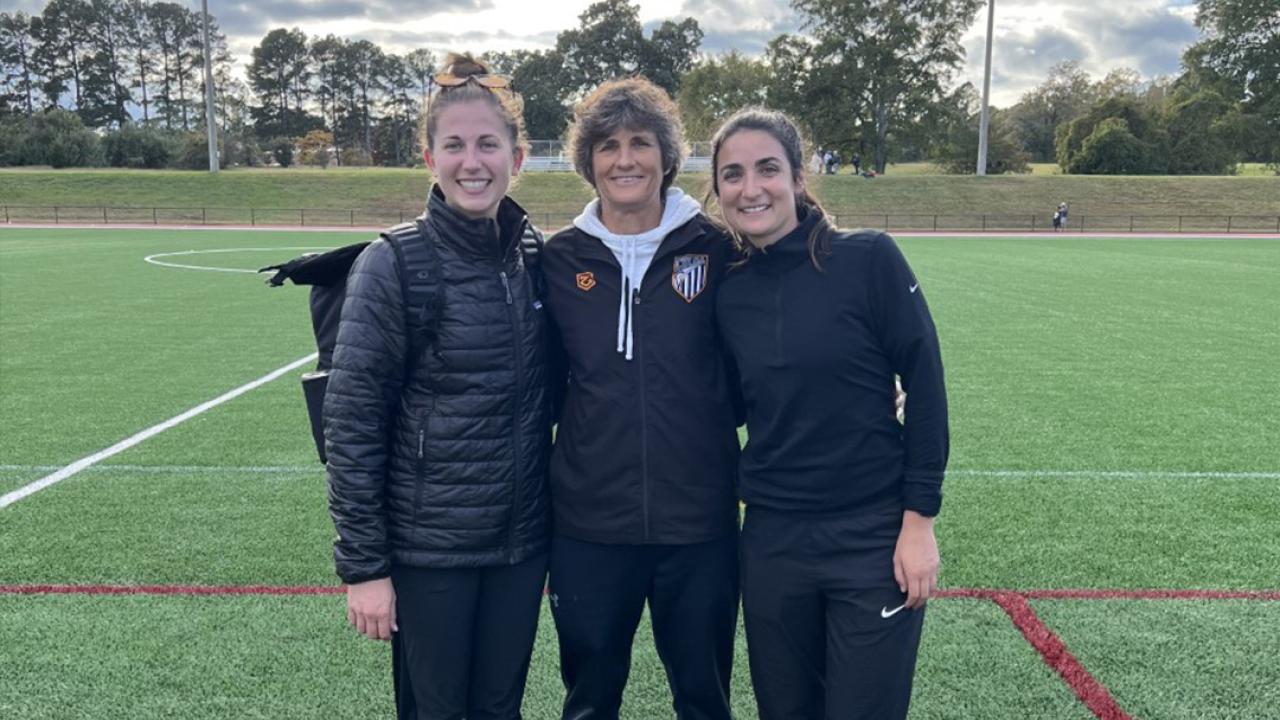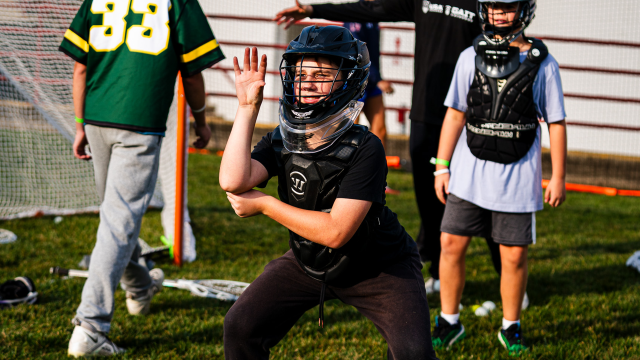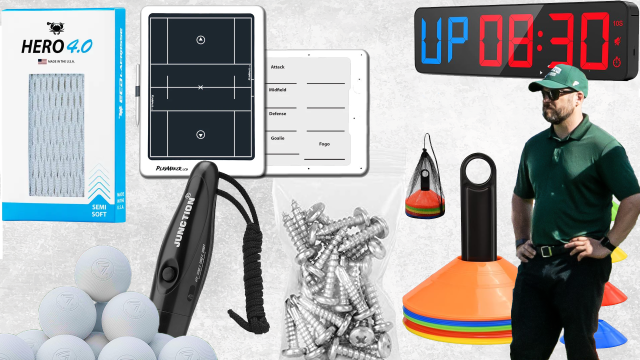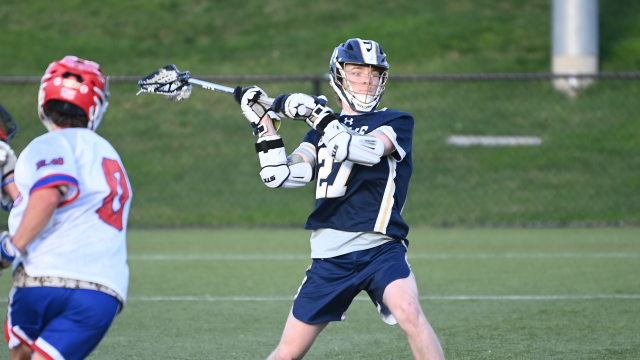
The Key to Using Your Playing Experience as an Official
This article appears in the January edition of USA Lacrosse Magazine. Join our momentum.
Taylor Chumney Scotton first picked up a lacrosse stick at around age 10 in Morrisville, New Jersey. She went on to star as a defender at North Carolina, captaining the team and playing in a pair of final fours in 2009 and 2010.
Though Scotton spent some time as a coach, including as a volunteer assistant at UNC, becoming a mother inspired her to give back to the game in another way. These days, you can spot Scotton on the field with a whistle rather than a stick.
“My schedule as a mom is a little crazy, but I want to give back to the sport,” Scotton said.
Scotton went through a certification process that aims to help former women’s players and coaches become officials. The requirements included reading and writing materials, attending youth camps organized by top NCAA programs, attending a college clinic and undergoing an evaluation. Scotton passed — with an assist from her roots as a player — and began officiating last season.
“As someone who played, I would love to have someone officiating my game who played it themselves,” Scotton said. “There are nuances and flow to the game that you naturally understand having played the sport.”
Scotton’s goal is the same as when she was a college player: to be on the field Memorial Day weekend. She shared why her playing days have given her a head start on reaching that goal.
GO WITH THE FLOW
Scotton realized that her decades-long experience playing the game would help her as an official. Following plays came naturally, and she didn’t have to think twice.
“When the ball is being rotated offensively, you have to understand where you need to be standing to see the play,” Scotton said.
Scotton looks through the 8-meter. She understands the body language and can tell when a player is turning her shoulder, moving the ball low and getting set to run a play from X.
“You are ready to make that move, too, as an official to be in the right position,” she said. “Someone who isn’t as familiar with the flow of the game may be a step behind.”
QUIRKY CALLS
Three-second and shooting space calls can be some of the most confusing for someone watching the game for the first time. The same can be said for officials in training.
“Those are difficult concepts for someone who hasn’t played to understand what they look like and how it unfolds,” Scotton said.
But Scotton is a defender by trade. She knows that defenders check in and out of the 8-meter to avoid three seconds and how to disrupt a shot without being in an attacker’s cone of vision.
GETTING DEFENSIVE
It’s tempting to default to calling a foul against a defender if an offensive player stumbles or loses the ball. “As a defender, sometimes you’re just establishing your space and trying to play good defense, and an attacker may be driving hard into you,” Scotton said. “You can’t always assume the defense was at fault.”
As a former defender, Scotton can evaluate on the fly.
“Did they do everything in their power to play good defense without making a foul? Was the contact that the attacker created with the defender part of the play, or did the defender create a foul?” Scotton said she asks herself.
TEAM MENTALITY
Scotton understands the game, but she’s humble enough to know she still has room to grow in her new role. And just like she did as a player, she asks for feedback — even if it’s in front of players, coaches and crowds. She doesn’t get flustered if another official lets her know she’s setting up a draw incorrectly and helps her adjust. “I am relying on my team just like I would if I was a player,” Scotton said.
PASSION AND EMPATHY
Scotton knows what goes into preparing for a game as both a player and a coach. Sometimes, that can pour out if a call doesn’t go one team’s way.
“Coaches want to be heard,” Scotton said. “As a player and coach, I know the passion behind playing the game. For coaches, this is their livelihood, career and life. They want their players to have the best game.”
But Scotton can’t always hear a coach out if a play is in process. She makes a point to check in when she can.
“After a goal is scored, you can go up to the coach and ask what their question is,” Scotton said. “Then, they feel like they are being heard.”
Beth Ann Mayer
Beth Ann Mayer is a Long Island-based writer. She joined USA Lacrosse in 2022 after freelancing for Inside Lacrosse for five years. She first began covering the game as a student at Syracuse. When she's not writing, you can find her wrangling her husband, two children and surplus of pets.

Categories
Tags
Related Articles




